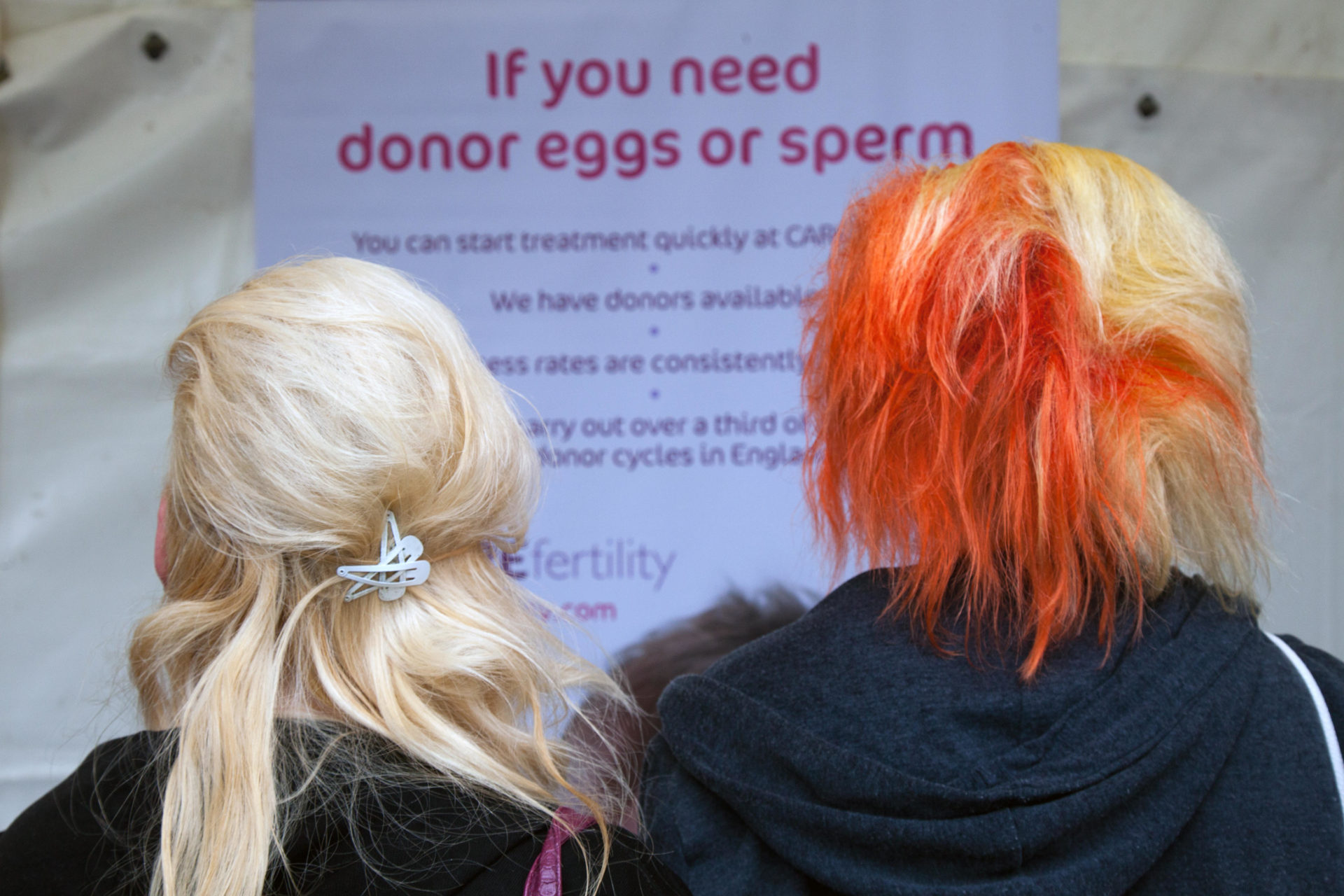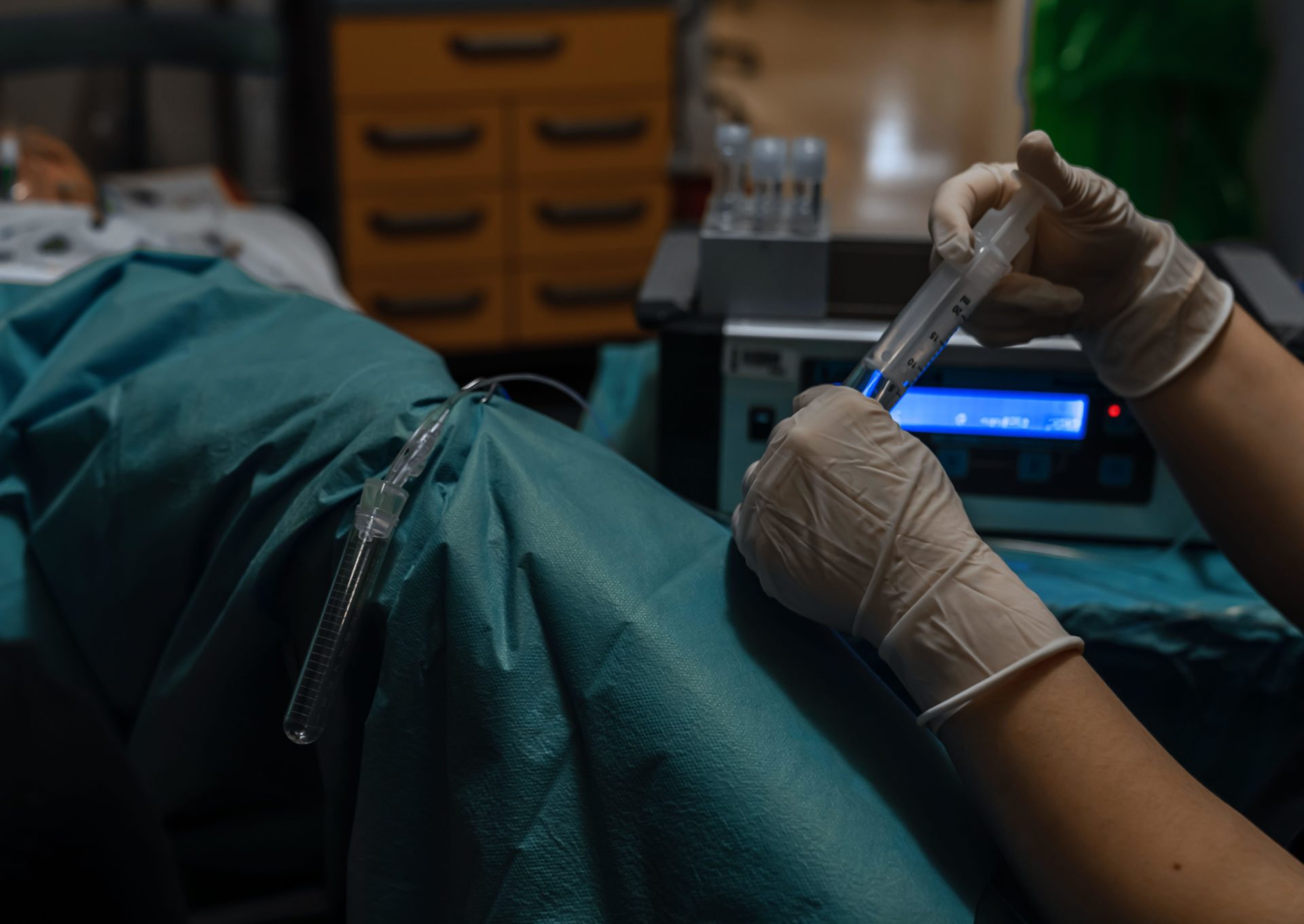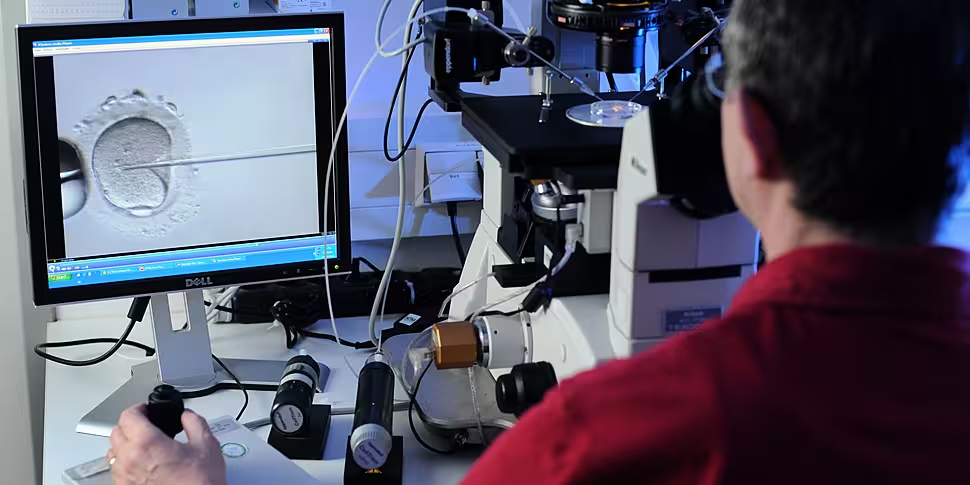The risks to women who freeze their eggs “have functionally dropped to almost zero”, a gynaecologist has said.
Once a woman reaches 35, the quality of her eggs tends to decrease and after 40 the decrease accelerates.
With that in mind, many women who hope to have a baby in the future freeze their eggs in order to maximise the chance they can get pregnant later in life.
Following the pandemic, fertility clinics reported a surge in the number of women contacting them about getting their eggs frozen and Dr John Kennedy said the science behind the procedure has improved significantly.
“In the past, the way we stimulated and the way we triggered them the maturity and the release of these eggs exposed women to significant risk over egg hyper stimulation,” he told the Hard Shoulder.
“Over the last number of years, we’ve got an awful lot better at managing that and the risks have functionally dropped to almost zero with that.”
 Women reading a sign.
Women reading a sign.'I was always aware I might have fertility issues'
One woman who decided to freeze her eggs when she reached her 30s is Anna Monaghan.
“I have Polycystic Ovarian Syndrome (PCOS),” she explained.
“I was told I had it when I was at 21-years-of-age, so I was always aware I might have fertility issues.”
PCOS affects one in five women of childbearing age and means a woman’s ovaries sometimes do not release an egg.
Because of this Anna said her fertility was “always in the back of my mind” and a few years ago she had a scan of her eggs to assess their healthiness.
“He [the doctor] said they were looking better than ever, so if I was planning on having children in the future - I was single at the time - it would be a good idea to freeze them or look into freezing them,” she said.
 Egg retrieval from a female donor.
Egg retrieval from a female donor.Occasionally, Anna has flare ups of her PCOS and she decided it was the perfect time to freeze her eggs.
“I took some tablets for two weeks and then I would go in for scans for therapy every few days and then I took injections for about a week,” she said.
“And then I went into the procedure, took the day off work, had someone drive me in and Dr John [Kennedy] did the procedure.”
In Anna’s case, it only took one session to retrieve 23 healthy eggs but in some cases two sessions are required.
“I just have a direct debit set up for a storage fee,” she said.
“€20 comes out of the bank every month so I know I have that back up plan if I ever need it.”
Anna said she “definitely” wants children and has recently got engaged.
“Our plan is to start having children whenever the time works for us,” she said.
“But if we do come into any trouble and we have to go down the IVF route, step one is already done with the younger eggs that I know are healthy.”
The Irish Government is committed to making IVF free in Ireland during the current Dáil term.
Main image: Fertilization of an egg. Picture by: Alamy.com









